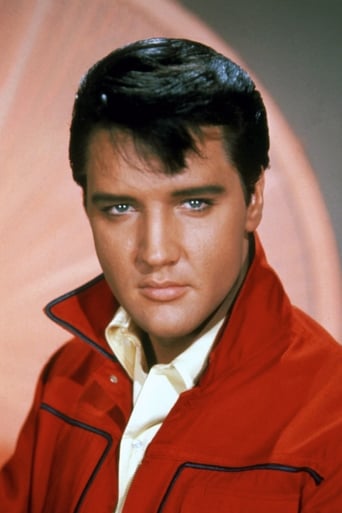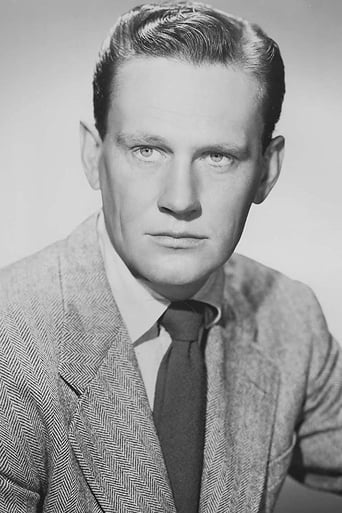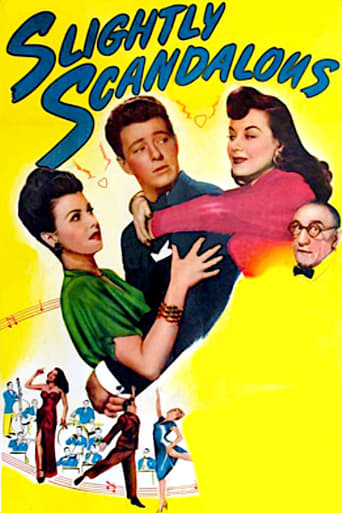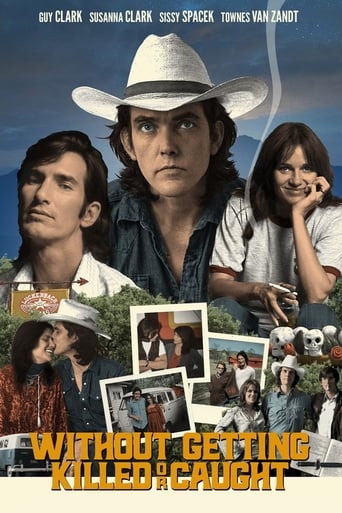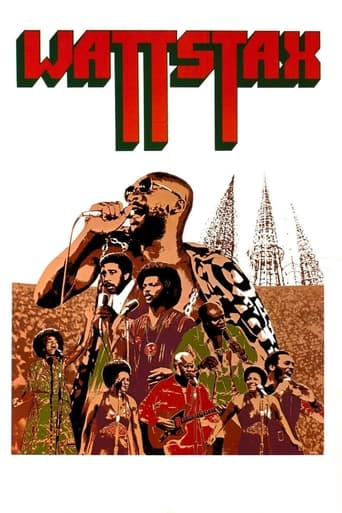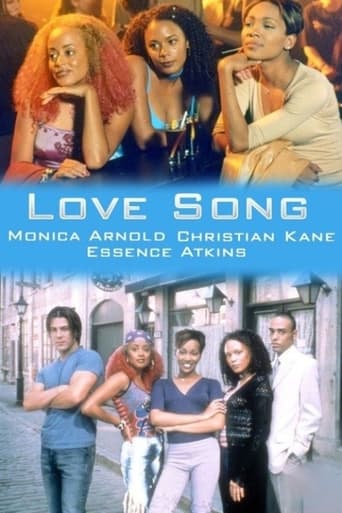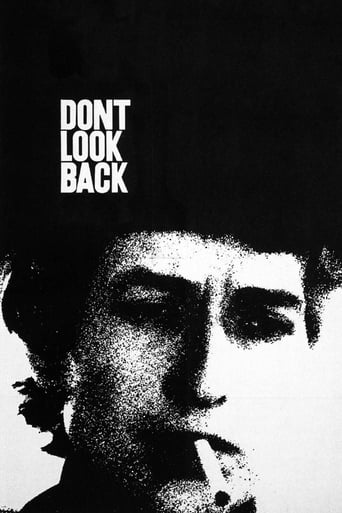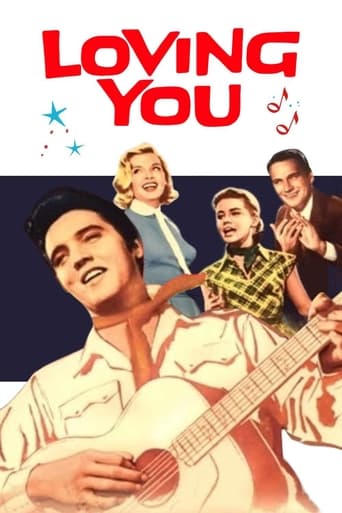
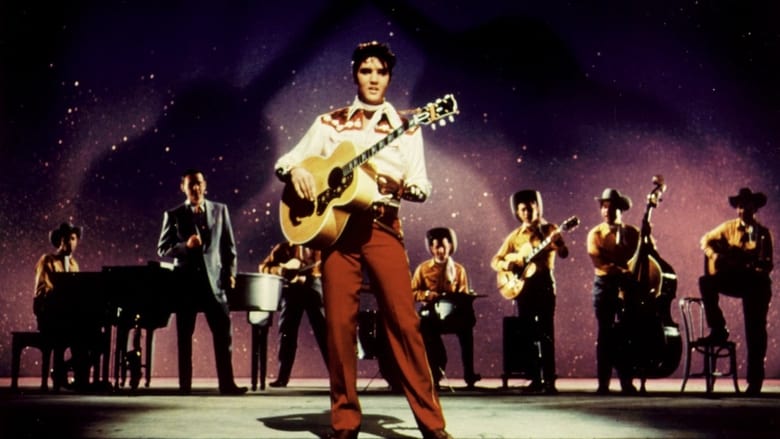
Loving You (1957)
Deke Rivers is a delivery man who is discovered by publicist Glenda Markle and country-western musician Tex Warner who want to promote the talented newcomer to fame and fortune, giving him every break he deserves. Romantic complications arise as Susan, another singer in the group, offers him devoted admiration as Glenda leads him on with promises of a golden future.
Watch Trailer
Cast


Similar titles
Reviews
Threadbare plot pumped up with Elvis Presley and his rockabilly music, worth sitting through for that reason alone. Delivery boy in a small town is brought on-stage at a community rally to sing by an ambitious female press agent for a country-western band; he's an instant hit, so the gambit is repeated in town after town until the kid becomes a star. The screenplay from Herbert Baker and Hal Kanter, inspired by the magazine story "A Call From Mitch Miller"--as well as Elvis' penchant for shaking up live audiences--doesn't allow for characters; it's just a star-vehicle. Presley's Deke Rivers is haphazardly written: he's a rube, he's polite, he does what he's told, but then it's revealed he has a dark past (and a terrible temper, which flares up unexpectedly). The idea seems to have been to show all sides of Presley's personality (a live-wire on-stage, but modest and trusting in life--until he's pushed too far). Perhaps Deke's personality--a scrubbed-clean boy who doesn't understand the level of excitement in his own performances--but was based on Presley's image, but here it doesn't ring true, especially not with such unsure dialogue and acting. But then, this is nothing more than a fantasy for bobby soxers--a way to utilize Elvis, his moves and his music, that television at the time couldn't do. ** from ****
One of the bests -if not the best- Elvis films. It has it all: nice script, good plot, convincing performances and great songs. Elvis performs some of his great rock 'n roll hits -"(Let Me Be Your) Teddy Bear", "(Let's Have A) Party", "Hot Dog",...- and Loving You and you can see he's having a great time...so will you by watching this film. Plot is a basic but effective formula: a publicist manager (Lizabeth Scott) of a country group lead by Tex Warner (Wendell Corey) with singer Susan Jessup (Dolores Hart) discovers a local delivery boy singing talent and offers him a contract with them. Soon he becomes more and more successful. But the golden road to fame and fortune is not a bed of roses: fan harassment, love and discovery that things are not what they really seem to be in the showbiz world will test the boy, who should decide what his priorities in life are. Elvis mother Gladys and father Vernon do appear in the final musical numbers as part of the public, sitting by the central passage. An enjoyable film, specially if you are an Elvis fan, you can see him singing and shaking at the peak of his youth rhythm and talent offering us a sincere performance: definitely it's Elvis at his best!
Elvis Presley commanded top billing in his second movie, freshman director Hal Kanter's "Loving You," but it is Lizbeth Scott who commands the attention. Cast as an ambitious Svengali-like publicist, Scott boasts wattage to burn and outshines Presley. The Herbert Baker & Hal Kanter screenplay, based on a story by Mary Agnes Thompson, amounts to a semi-autobiographical account of the ascension of Presley's nobody singer to stardom. In fact, "Loving You" could be compared with "A Star Is Born" because Presley's star ascends while Wendell Corey's washed-up singer Tex Warner sinks into the sunset. Hard luck toppled Tex from stardom and nobody in the industry has any use for him. Nevertheless, unlike "A Star is Born," "Loving Up" contains enough drama to maintain tension throughout its 101 minutes without immersing its audience in tragedy. Corey and Scott generate credible chemistry as an older couple while Presley gravitates between Scott and newcomer Dolores Hart. For the record, in addition to the eponymous title tune, Elvis performs "(Let Me Be Your) Teddy Bear" and "Got A Lot O' Livin' To Do" to "(Let's Have A) Party," "Mean Woman Blues," and "Hot Dog."The Baker & Kanter screenplay has more substance than you might imagine and the dialogue is far from embarrassing. Presley plays beer delivery driver Deke Rivers, an orphaned truck driver who tools around in his black hot rod making deliveries, and his latest delivery is to a snake-oil salesman on the campaign trail for the upcoming gubernatorial election. Big Jim Tallman (Ralph Dumke of "Violent Saturday") has hired Tex Warner (Wendell Corey of "Cyborg 2087") and his cowboy swing band to attract and entertain citizens so that he will have a crowd to regale with his promises. Tallman also has Glenda Markle (Lizabeth Scott of "Dead Reckoning") on the payroll as his publicist, but Glenda—like Tex—hasn't seen a paycheck in several weeks. When Deke rolls up in his roadster, his buddy touts his singing talent and Glenda hustles Deke onto the platform to warble a few tunes. Tex notices that the guys in the crowd are not impressed, but Glenda spots the reaction of the gals and knows that she has gotten a gold mine.Glenda makes Deke an offer to sing with Tex's band for twice the cash that he earns hauling beer. All he has to do is show up in the morning to head out with them. Tex and Glenda are dumping Big Jim because he cannot pay them. Meanwhile, Deke has already had a taste of show business and it wasn't pleasant. The cheapskate promoter skipped town without paying him off and stole his guitar so Deke doesn't jump at Glenda's proposition. Nonetheless, Glenda isn't going to take no for an answer and goes so far as to complain to Deke's employer. She complains that Deke made his beer delivery late and the boss fires Deke. At the same time, Tex questions Glenda's judgment but bows to it because she is the brains behind their publicity. Predictably, the women go wild for Deke. One stands up in the audience and yells at him. Later, another girl hides in his dressing room and demands a kiss before she will leave. As they are kissing, Glenda and two newspaper people snap a photo of them that winds up in the press. Melodramatic madness sets in around the last half hour because Tex thinks Glenda has dumped him for Deke. Deke is scheduled to perform in the small Texas town of Freegate, but the oldsters convince the city fathers to cancel the concert. This reflects the tension that existed between older people who didn't like rock'n roll and the youngsters who embraced with a passion. Glenda takes on city hall and persuades the nearsighted politicians to do an about face when she informs them that television cameras will descend on their small town and show the world what a great place it is to live. Suspense mounts when Deke decides in a fit of anger to leave so Glenda takes off after him while the harried television producer parcels out time to interview Deke's fans. Eventually, Glenda catches up with Deke and manages to change his mind. The concert is a smash and Deke is set for life, but trouble has been brewing because Tex thinks that Deke is moving in on Glenda. Meanwhile, Deke doesn't realize that their new agent, Carl Meade (James Gleason of "Arsenic and Old Lace"), has sacked everybody because Deke is the only one pulling in the dough. Among those fired is Susan Jessup (Dolores Hart) and Deke has developed an affection for Susan because he can talk to her about things other than business. Deke drives her home to her parents and discovers during a quiet moment what has happened. Surprisingly, Hal Kanter didn't helm that many movies. "Loving You" is a good Elvis Presley epic and the action is well thought out. The troubled life of Deke Rivers is interesting, especially his origins when he fled from an orphanage and stumbled into a grave yard when he appropriated his name from a tombstone. Presley never received the credit that he deserved as an actor and he gives a sincere, well-rounded performance that provides him with moments of happiness, anger, and nonchalance. The honky-tonk fight between Deke and Wayne (Kenneth Becker) is staged well and looks rather brutal as they pummel each other with repeated blows. "Loving You" qualifies as a good Presley potboiler.
Elvis Presley’s second film and his first in color has, on the surface of it, a standard ‘road-to-stardom’ plot which probably mirrored The King’s own rise to fame, though obviously given the Hollywood treatment with an older female press agent falling for him, the singer almost giving up his career at the moment of triumph, etc. In fact, I’d go so far as to say that this occasionally plays like a lighter version of Elia Kazan’s A FACE IN THE CROWD which was actually released a few days before the Elvis movie…although the success story turning sour bit was more thoroughly dealt with in Elvis’ next outing, JAILHOUSE ROCK (1957)! Of the four new vehicles of his that I’ve watched so far, this is clearly the most satisfactory what with the pleasant Technicolor, the professional Hollywood handling and a solid supporting cast (Lizabeth Scott, Wendell Corey, James Gleason), etc. The underrated Corey excels in his portrayal of a has-been entertainer reduced to headlining a modest traveling rockabilly act until Elvis joins the troupe that is and, unsurprisingly, steals his thunder; Lizabeth Scott takes some time getting used to here as the scheming press agent but she acquits herself fairly well in the long run and lovely Dolores Hart is the singer whom the public merely “tolerates” but whose charm and modesty win over the troubled Elvis.Presley himself is here still full of the raw magnetism which made him a sensation at the time as he belts out one electrifying hit tune after another, from “(Let Me Be Your) Teddy Bear” and “Got A Lot O’ Livin’ To Do” to “(Let’s Have A) Party” and the title ballad, of course. Actually, it was while leafing through the first edition of Guinness’ “All-Time Top 1000 Albums” of 1994 that I became interested more than ever before in Elvis’ musical heritage since he had an impressive 8 entries in that list, including this film’s soundtrack album and the subsequent one for KING CREOLE (1958).


